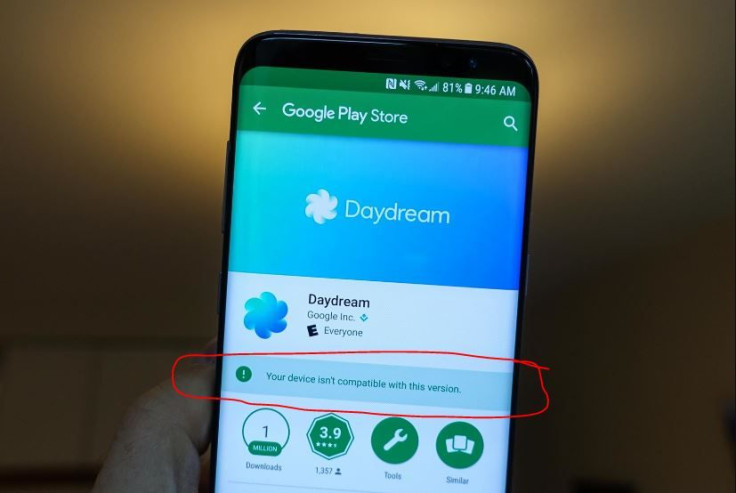Samsung Galaxy S8 Google Daydream Compatibility Hinted In T-Mobile Update Documents

Details within the changelog of a recent T-Mobile update could give clues about the impending Google Daydream update expected for the Samsung Galaxy S8 and Galaxy S8+.
While Google announced in May that Daydream compatibility was soon coming to a host of Android devices, including the latest Galaxy models, several months have passed with no news of a software update or any other implementation of the virtual reality feature. However, Android Police recently discovered that Daydream compatibility may be hidden within a software update, which carrier T-Mobile recently deployed to hinder Galaxy S8 users ability to remap the Bixby button to execute other functions.
Read: Android O Beta Release Date: 9 Features Announced At Google I/O 2017
The update hit Galaxy S8 handsets last Saturday. Upon discovering the Daydream details, Richard Gao of Android Police attempted to flash Daydream onto a Galaxy S8 handset. However, the software prompted the handset was not compatible with the virtual reality platform.
According to the carrier changelog, the new update includes tweaks to T-Mobile’s new DIGITS service, a fix for microphone issues on Qualcomm-powered handsets, Bixby enhancements (the remapping block) and other system improvements. T-Mobile has since amended its changelog page, removing details about Google Daydream. At one point, the page had been updated to say Daydream compatibility was “coming soon,” according to the Android Police.
Read: Samsung's Galaxy S8 Doesn't Support Google Daydream VR
As per Google’s announcements at its I/O conference in May, its VR platform will soon upgrade to its second generation, called Daydream 2.0 Euphrates. This version is expected to bring Chromecast support, a 360-degree in-headset Chrome browser experience, and YouTube VR capabilities, among others.
Google’s Daydream page also indicates that compatibility is coming soon for devices including the Galaxy S8 and Asus Zenfone AR. However, there are no further rollout details mentioned.
© Copyright IBTimes 2024. All rights reserved.












